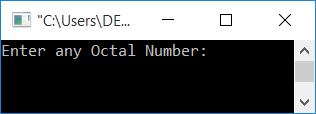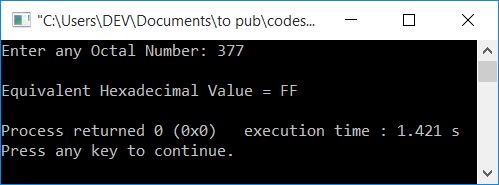- C++ Programming Examples
- C++ Programming Examples
- C++: Hello World
- C++: Get Input
- C++: Print Integer
- C++: Add two numbers
- C++: Add, Sub, Multiply, Div
- C++: Add Digits
- C++: Find Average and Percentage
- C++: Find Arithmetic Mean
- C++: Sum of n Natural Numbers
- C++: Sum of n Numbers
- C++: Square's Area and Perimeter
- C++: Rectangle's Area and Perimeter
- C++: Triangle's Area and Perimeter
- C++: Area and Circumference
- C++: Find Simple Interest
- C++: Fahrenheit to Celsius
- C++: Celsius to Fahrenheit
- C++: Print Prime Numbers
- C++: Reverse a Number
- C++: Swap Two Numbers
- C++: Print Multiplication Table
- C++: Find Factorial of a Number
- C++: Find Factors of a Number
- C++: Find HCF and LCM
- C++: Create a Calculator
- C++: Count Digits in a Number
- C++: First and Last Digit Sum
- C++: Product of Number Digits
- C++: Sum of Squares of Digits
- C++: Interchange Digits of Number
- C++ if-else Programs
- C++: Check Even or Odd
- C++: Check Prime or Not
- C++: Check Alphabet or Not
- C++: Check Vowel or Not
- C++: Check Leap Year or Not
- C++: Check Reverse equals Original
- C++: Check Perfect Number
- C++: Check Palindrome or Not
- C++: Check Armstrong or Not
- C++: Divisibility Test
- C++: Find Labor Wage
- C++: Find Discounted Price
- C++: Find Shipping Charge
- C++: Find Telephone Bills
- C++: Calculate Student Grade
- C++: Largest of Two Numbers
- C++: Largest of Three Numbers
- C++ Number Conversion
- C++: Decimal to Binary
- C++: Decimal to Octal
- C++: Decimal to Hexadecimal
- C++: Binary to Decimal
- C++: Binary to Octal
- C++: Binary to Hexadecimal
- C++: Octal to Decimal
- C++: Octal to Binary
- C++: Octal to Hexadecimal
- C++: Hexadecimal to Decimal
- C++: Hexadecimal to Binary
- C++: Hexadecimal to Octal
- C++ Pattern Programs
- C++: Pattern Programs
- C++: Print Diamond Pattern
- C++: Print Floyd's Triangle
- C++: Print Pascal's Triangle
- C++ Array Programs
- C++: 1D Array Program
- C++: Linear Search
- C++: Binary Search
- C++: Largest Element in an Array
- C++: Smallest Element in an Array
- C++: Find Second Largest Element
- C++: Find Second Smallest Element
- C++: Sum of All Elements
- C++: Multiply All Elements
- C++: Element in Even Position
- C++: Element in Odd Position
- C++: Print Even Numbers in Array
- C++: Print Odd Numbers in Array
- C++: Count Even or Odd Numbers
- C++: Sum of Even or Odd Numbers
- C++: Count Positive, Negative, Zero
- C++: Reverse an Array
- C++: Insert an Element
- C++: Delete an Element
- C++: Merge two Arrays
- C++: Bubble Sort
- C++: Selection Sort
- C++: Insertion Sort
- C++: Common Elements
- C++: 2D Array Programs
- C++: Add Two Matrices
- C++: Subtract Two Matrices
- C++: Transpose Matrix
- C++: Multiply Two Matrices
- C++: 3D Array Programs
- C++ String Programs
- C++: Print String
- C++: Find String Length
- C++: Compare Two Strings
- C++: Copy String
- C++: String Concatenation
- C++: Reverse a String
- C++: Delete Vowels from a String
- C++: Delete a Word from a String
- C++: Count Characters in a String
- C++: Count Words in a String
- C++: Frequency of Words
- C++: Remove Spaces from Strings
- C++: Sort a String
- C++: Uppercase to Lowercase
- C++: Lowercase to Uppercase
- C++: Swap Two Strings
- C++: Check the Anagram or Not
- C++: Capitalize All Words in a String
- C++: Get Numbers from a String
- C++ File Programs
- C++: Read a File
- C++: Write Content to a File
- C++: Append Data to a File
- C++: Read and Display File
- C++: Copy a File
- C++: Merge Two Files
- Count Characters in a File
- C++: Capitalize Every Word
- C++: List Files in Directory
- C++: Delete a File
- C++: Encrypt and Decrypt a File
- C++ Misc Programs
- C++: Print ASCII Value
- C++: Add Binary Numbers
- C++: Generate Random Numbers
- C++: Print a Smiling Face
- C++: Days into Years and Months
- C++: Add Two Numbers using Pointer
- C++: Print Fibonacci Series
- C++: Generate Armstrong Numbers
- C++: Find nCr and nPr
- C++: Get IP Address
- C++: Print Date and Time
- C++: Shutdown and Restart Computer
- C++ Programming Tutorial
- C++ Tutorial
C++ Program to Convert Octal to Hexadecimal
In this article, you will learn about and get code for octal to hexadecimal conversion in C++. The program is created with and without using user-defined functions.
Before going through the program, if you are not aware of the formula or steps used for the conversion of octal to hexadecimal, you can refer to the octal to hexadecimal steps to get everything that is required during the conversion from octal to hexadecimal.
Without Function, Octal to Hexadecimal in C++
To convert an octal number to a hexadecimal number in C++ programming, you have to ask the user to enter the octal number first. And then convert it into its equivalent hexadecimal value as shown in the program given below:
#include<iostream> #include<string.h> using namespace std; int main() { int octalNum, rev=0, rem, chk=0, hex=0, mul=1, i=0, k=0; char binaryNum[40] = "", hexnum[40]; cout<<"Enter any Octal Number: "; cin>>octalNum; while(octalNum!=0) { rem = octalNum%10; if(rem>7) { chk++; break; } rev = (rev*10) + rem; octalNum = octalNum/10; } if(chk==0) { octalNum = rev; while(octalNum!=0) { rem = octalNum%10; switch(rem) { case 0: strcat(binaryNum, "000"); break; case 1: strcat(binaryNum, "001"); break; case 2: strcat(binaryNum, "010"); break; case 3: strcat(binaryNum, "011"); break; case 4: strcat(binaryNum, "100"); break; case 5: strcat(binaryNum, "101"); break; case 6: strcat(binaryNum, "110"); break; case 7: strcat(binaryNum, "111"); break; } octalNum = octalNum/10; } while(binaryNum[k]!='\0') k++; chk=1; k--; while(k>=0) { if(binaryNum[k]=='0') rem = 0; else rem = 1; hex = hex + (rem*mul); if(chk%4==0) { if(hex<10) hexnum[i] = hex+48; else hexnum[i] = hex+55; mul = 1; hex = 0; chk = 1; i++; } else { mul = mul*2; chk++; } k--; } if(chk!=1) hexnum[i] = hex+48; if(chk==1) i--; cout<<"\nEquivalent Hexadecimal Value = "; chk = 0; for(i=i; i>=0; i--) { if(hexnum[i]=='0' && chk==0) { chk++; continue; } else cout<<hexnum[i]; } } else cout<<"\nInvalid Octal Digit "<<rem; cout<<endl; return 0; }
This program was built and runs under the Code::Blocks IDE. Here is its sample run:

Now input any octal number, say 377, and press the ENTER key to see its equivalent hexadecimal value as shown in the output given below:

This program converts octal to binary and then binary to hexadecimal.
You can also approach the second way, which is octal to decimal and then decimal to hexadecimal. Here, the first way is used because the second way is a little easier to create and understand. So you can follow both the article and create it yourself.
Octal to Hexadecimal using a Function in C++
This program does the same job as the previous program. The only difference is that it is created using the user-defined function octalToHexa().
#include<iostream> #include<string.h> int reverseNum(int); void octalToHexa(int); static int chk, i; char hexnum[40]; using namespace std; int main() { int octalNum; cout<<"Enter any Octal Number: "; cin>>octalNum; octalToHexa(octalNum); if(chk!=0) { cout<<"\nEquivalent Hexadecimal Value = "; chk = 0; for(i=i; i>=0; i--) { if(hexnum[i]=='0' && chk==0) { chk++; continue; } else cout<<hexnum[i]; } } else cout<<"\nInvalid Octal Digit!"; cout<<endl; return 0; } void octalToHexa(int octalNum) { int rev=0, rem, hex=0, mul=1, k=0; char binnum[40] = ""; rev = reverseNum(octalNum); if(rev!=0) { octalNum = rev; while(octalNum!=0) { rem = octalNum%10; switch(rem) { case 0: strcat(binnum, "000"); break; case 1: strcat(binnum, "001"); break; case 2: strcat(binnum, "010"); break; case 3: strcat(binnum, "011"); break; case 4: strcat(binnum, "100"); break; case 5: strcat(binnum, "101"); break; case 6: strcat(binnum, "110"); break; case 7: strcat(binnum, "111"); break; } octalNum = octalNum/10; } while(binnum[k]!='\0') k++; chk=1; k--; while(k>=0) { if(binnum[k]=='0') rem = 0; else rem = 1; hex = hex + (rem*mul); if(chk%4==0) { if(hex<10) hexnum[i] = hex+48; else hexnum[i] = hex+55; mul = 1; hex = 0; chk = 1; i++; } else { mul = mul*2; chk++; } k--; } if(chk!=1) hexnum[i] = hex+48; if(chk==1) i--; } else chk=0; } int reverseNum(int octalNum) { int rem, rev=0; while(octalNum!=0) { rem = octalNum%10; if(rem>7) return 0; rev = (rev*10) + rem; octalNum = octalNum/10; } return rev; }
It produces the same output as the previous program.
The same program in different languages
« Previous Program Next Program »